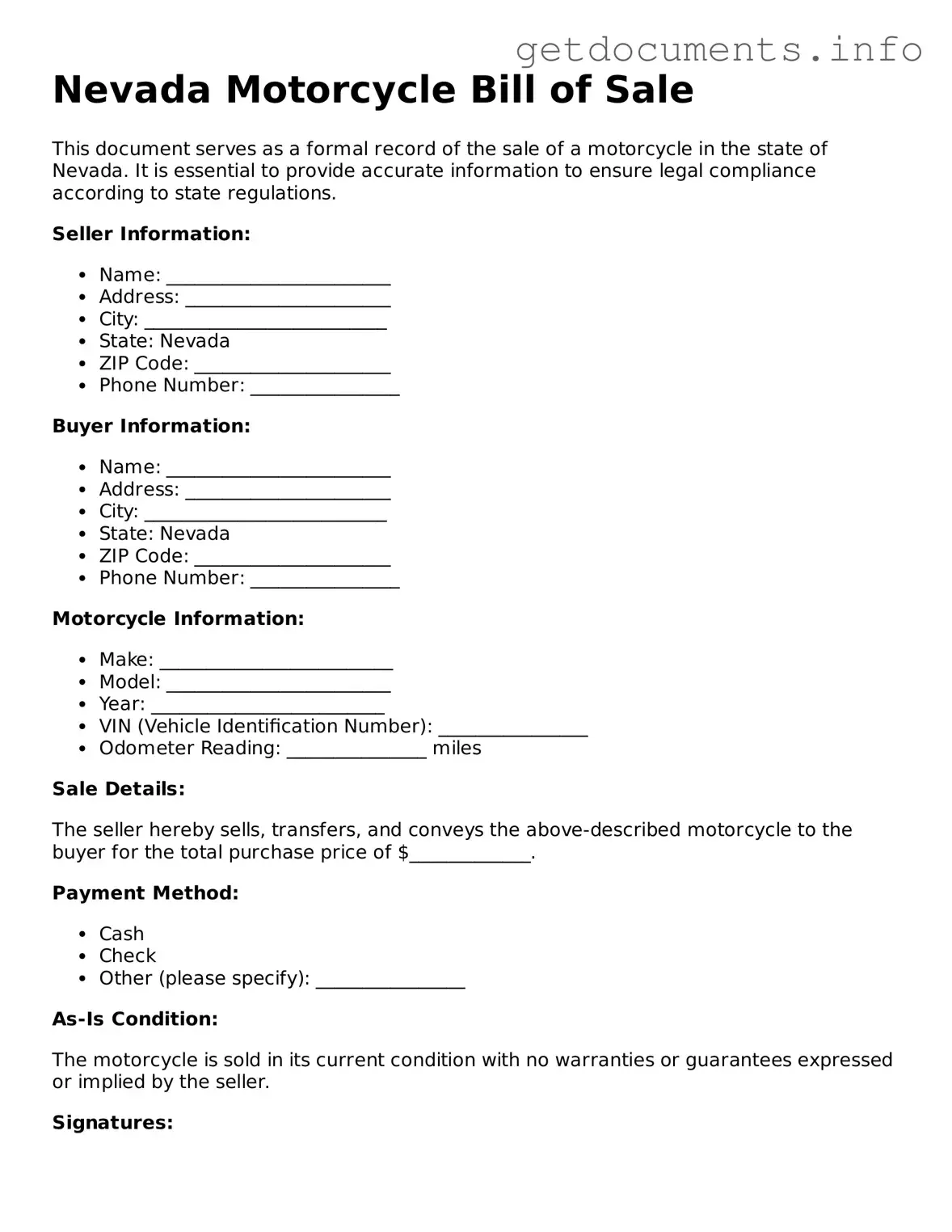Free Motorcycle Bill of Sale Template for Nevada
The Nevada Motorcycle Bill of Sale form is a legal document that records the sale of a motorcycle between a buyer and a seller. This form serves as proof of ownership transfer and is essential for registering the motorcycle in the new owner's name. Ensure you complete the form accurately to avoid any future complications.
Ready to fill out the form? Click the button below to get started.
Access Motorcycle Bill of Sale Editor

Free Motorcycle Bill of Sale Template for Nevada
Access Motorcycle Bill of Sale Editor
Got places to be? Complete the form fast
Fill out Motorcycle Bill of Sale online and avoid printing or scanning.
Access Motorcycle Bill of Sale Editor
or
⇩ PDF File
